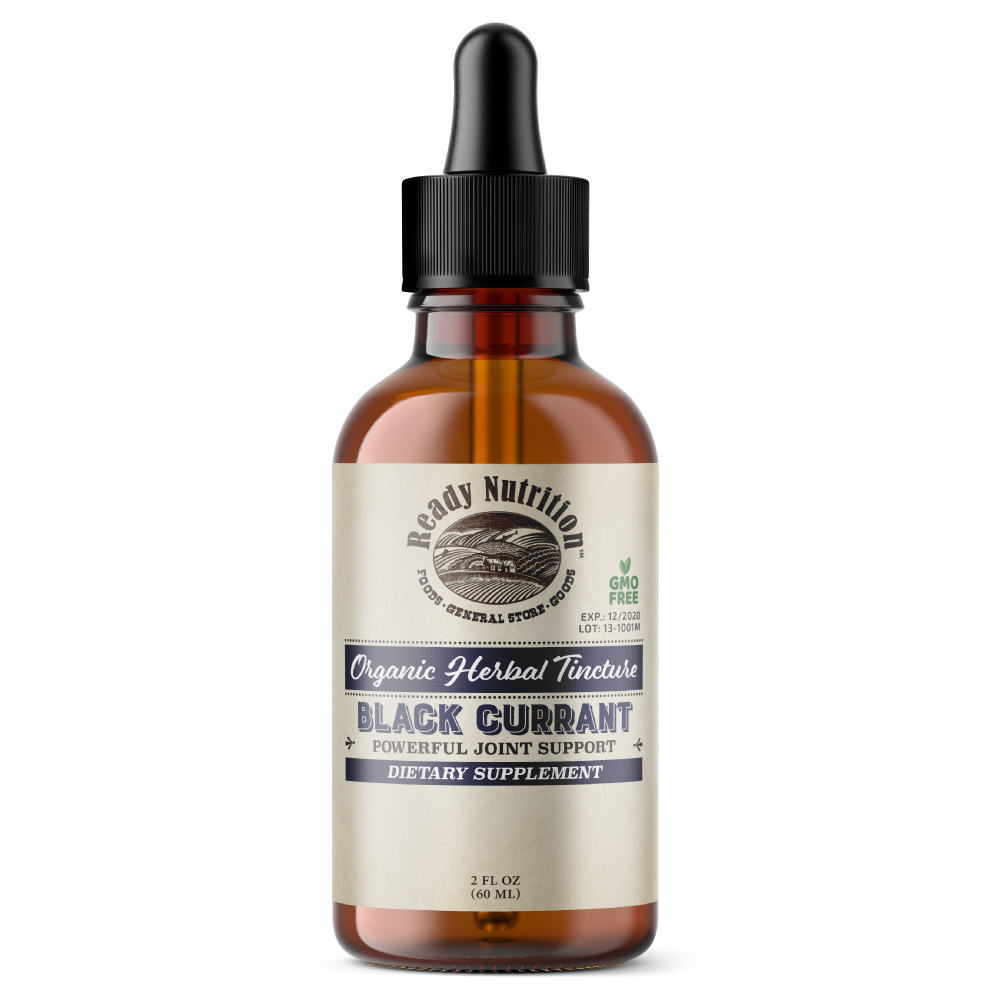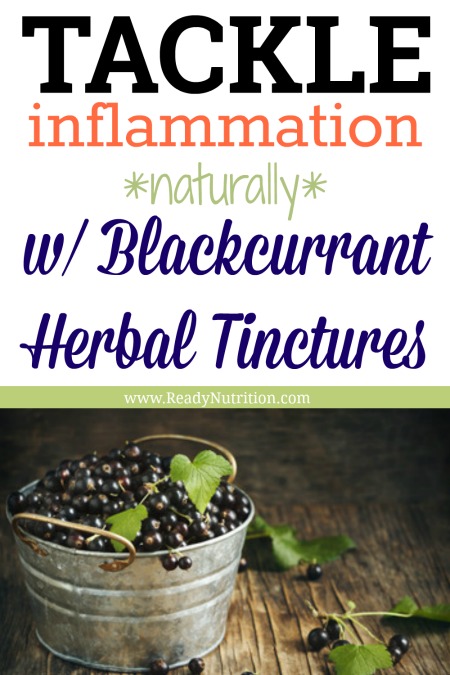Inflammation is becoming increasingly common among Americans. But there is a natural and herbal way to help relieve the pain and swelling often associated with inflammation, and that is with blackcurrant.
Blackcurrant has been called “the forbidden fruit” in the United States. Farmers thought that the tart berries, native to Europe and Asia, helped spread a fungus that killed pine trees. Because of this, many Americans have, unfortunately, missed out on these nutritious berries. Blackcurrants have a high concentration of anthocyanins, polyphenolic substances, antioxidants, vitamin C, and gamma-linolenic acid (GLA). In fact, blackcurrants carry four times the amount of vitamin C as oranges and twice the amount of antioxidants as blueberries! The benefits of vitamin C are many. The body uses vitamin C to metabolize protein and form collagen, which is essential for skin care and anti-aging.
But perhaps the greatest net benefit from blackcurrant is the anti-inflammatory properties. Blackcurrants have a direct effect on your body’s inflammatory response. Blackcurrant seed oil contains gamma-linolenic acid (GLA), a type of omega-6 fatty acid that’s been said to help ease inflammation in the body. The high GLA and anthocyanin content can help reduce joint or muscle pain. In some studies, GLA supplements were so effective that participants with rheumatoid arthritis could reduce their usual pain medications. That is great news for those with joint pain due to inflammation.
Inflammation is the body’s vital response to injury or infection. It is the body’s way of signaling the immune system it’s time to heal and repair damaged tissue, as well as defend itself against foreign invaders, such as viruses and bacteria. Without inflammation as a physiological response, wounds would fester, and infections could become deadly. However, if the inflammatory process goes on for too long or if the inflammatory response occurs in places where it is not needed, it can become incredibly problematic. Chronic inflammation has been linked to certain diseases such as heart disease or stroke, and may also lead to autoimmune disorders, such as rheumatoid arthritis and lupus, according to Live Science. But a healthy diet and lifestyle can help keep inflammation under control.
A great way to incorporate more blackcurrant into your diet is through herbal medicines, like a tincture. Herbal tinctures are becoming more widely used and therefore, more readily available. If you are looking for an easy way to reap the benefits of medicinal plants, take a look at herbal tinctures.
Tinctures are typically made by soaking herbs in alcohol for several weeks to extract the active components (phytochemicals) of the plants. After a few weeks, the herbal mixture is strained and the herb parts are removed, leaving behind the concentrated liquid. Alcohol is used because it is an excellent food-grade solvent and can extract herbal constituents (such as resins and alkaloids) that are poorly soluble in water. Another benefit of using alcohol as a solvent is that it is an excellent preservative that retains the freshness and potency of medicinal plants and greatly increases the shelf life of the tincture. Don’t worry – you won’t get intoxicated from the alcohol in tinctures.
Fresh or dried leaves, roots, bark, flowers, and berries may be used to make tinctures. They can be made from a single plant or a combination of plants. -Ready Nutrition
Since tinctures come in a liquid form, the body won’t need to digest leaves or herbs in order to be effective. Herbal tinctures can be added to water or teas as well as a means to obtain the healing properties.
Ready Nutrition’s™ Black Currant Organic Herbal Tincture for Joint Inflammation & Joint Pain activates the body’s own natural defenses to help reduce inflammation in the body. This tincture will relieve inflammation that causes painful, swollen joints and promote greater joint health and joint mobility.
for Joint Inflammation & Joint Pain activates the body’s own natural defenses to help reduce inflammation in the body. This tincture will relieve inflammation that causes painful, swollen joints and promote greater joint health and joint mobility.
It’s an easy way to get the support from the blackcurrant with the added bonus of not having to swallow a pill. Because they are concentrated, dosages can be very small and can be diluted further in your favorite beverage. You control how much natural medicine you might need!
Tinctures also have a milder, more subtle effect than pharmaceutical drugs, so it is important to have realistic expectations if you are using them for a chronic condition. Some tinctures DO provide rapid relief of symptoms, but most do not offer a quick fix.
SIDE EFFECTS
As with any supplement, it’s important to be aware of the side effects, however, blackcurrant is relatively safe. Both blackcurrant berries and seed oil are considered safe when taking the recommended doses, however, the supplements have been known to cause some side effects such as soft stools, mild diarrhea, and intestinal gas. Because blackcurrant can slow blood clotting, blackcurrant supplements are not recommended for people with bleeding disorders or those about to have surgery. Currently, not enough information is available about dried blackcurrant leaves, so it’s difficult to rate their safety. Women who are pregnant or breastfeeding should talk to their doctor before taking any supplements, including blackcurrant and other herbal tinctures.
*This article is for informational purposes only. Please contact a medical professional if you have any questions are supplements, herbal or otherwise.


This post is very good.